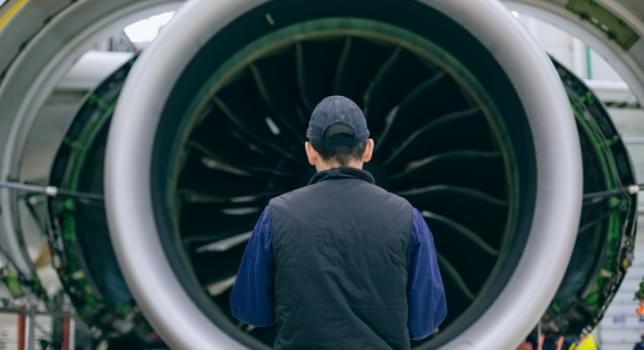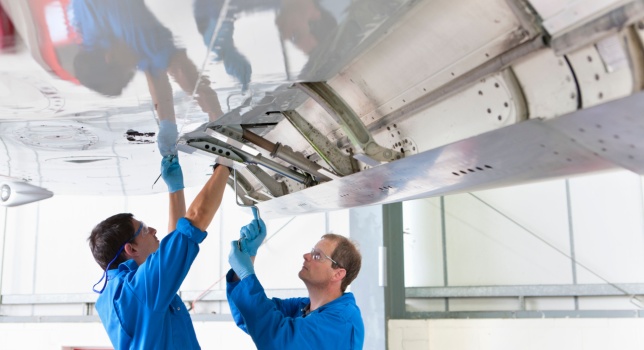The aerospace industry is one of the most intricate and highly regulated sectors in the world, where precision, safety, and quality take center stage. For aerospace suppliers and quality managers, meeting the rigorous demands of this sector is not optional; it’s a necessity. This is where AS9110 certification comes in.
AS9110 is a globally recognized quality management standard tailored specifically for the aerospace industry, particularly for maintenance, repair, and overhaul (MRO) organizations. If you're a supplier or quality manager, obtaining this certification not only ensures compliance with industry regulations but also opens up significant opportunities for growth and competitive advantage in a demanding market.
This blog explores the nuances of AS9110 certification, its key requirements, and, most importantly, its multifaceted benefits for aerospace organizations.
What Is AS9110 Certification?
The AS9110 standard is part of the AS9100 series of standards, which provide a quality management framework for the aerospace industry. While AS9100 is applicable to aerospace manufacturers, AS9110 focuses on MRO service providers, addressing the unique challenges and risks of the maintenance and overhaul process.
The standard is based on ISO 9001 but incorporates aerospace-specific criteria that aim to improve reliability, accountability, and transparency throughout the supply chain. Organizations that achieve AS9110 certification demonstrate their commitment to meeting stringent quality requirements and ensuring the continued airworthiness of the equipment they maintain.
Key Requirements of AS9110
The certification process requires organizations to implement a comprehensive quality management system (QMS) that complies with AS9110 standards. Here are some of its key components:
Documented Processes - A detailed set of procedures for all aspects of MRO operations must be in place, ensuring traceability and accountability.
Risk Management - AS9110 emphasizes identifying and mitigating risks to ensure repairs and maintenance are performed with utmost precision and consistency.
Customer Satisfaction - An AS9110-certified organization must have systems in place to collect and act on customer feedback, ensuring continuous improvement.
Root Cause Analysis - The certification requires robust processes for identifying and addressing the causes of non-conformance in services.
Regular Audits and Assessments - Adherence to regular internal and external audits is a key requirement, ensuring compliance with the QMS.
The Benefits of Achieving AS9110 Certification
For aerospace suppliers and managers, implementing AS9110-certified practices isn’t just about checking regulatory boxes. The certification brings a range of strategic benefits, from enhanced operational efficiency to competitive positioning.
1. Improved Safety and Compliance
Safety is paramount in the aerospace industry, and non-compliance with regulatory standards can have catastrophic consequences. AS9110 certification ensures that your organization adheres to industry-recognized safety and quality benchmarks. By following these strict guidelines, certified organizations significantly reduce the risk of errors in repair and maintenance processes, ensuring airworthiness and reliability.
Example: If an aerospace supplier's maintenance process involves multiple subcontractors, AS9110 ensures that every stage is documented and monitored for compliance, reducing the risk of faulty repairs.
2. Enhanced Reliability and Reputation
Being AS9110-certified signals to your clients that your organization is committed to excellence in operations. Customers, regulators, and other stakeholders perceive certified organizations as more reliable, boosting your reputation within the industry.
This trust is especially critical in the aerospace sector, where clients prioritize safety, reliability, and professionalism over cost savings. Being certified often acts as a decisive factor in supplier selection during bidding processes.
3. Access to Global Markets
AS9110 certification is internationally recognized, making it easier for your organization to do business globally. Many multinational aerospace companies require their suppliers to hold AS9110 certification as a precondition for contracts.
Example: A US-based aerospace supplier looking to expand its business into Europe can gain credibility and meet local regulatory demands more easily with AS9110 certification.
4. Streamlined Operations
Implementing AS9110 means adopting a robust quality management system that includes clear processes, accountability, and operational efficiencies. This isn’t just about meeting compliance requirements. It also leads to greater internal efficiency by reducing redundancies, minimizing waste, and optimizing workflows.
The result? Quicker turnaround times, improved resource management, and reduced costs.
5. Stronger Customer Relationships
Clients in aerospace maintenance industries often demand transparency and accountability. AS9110 establishes a level of trust with these clients by demonstrating that your organization values customer feedback, adheres to rigorous safety protocols, and actively works to improve service delivery.
6. Continuous Improvement
By following the standard’s built-in processes for monitoring, measurement, and analysis, organizations are encouraged to drive continuous improvement. This adaptability is key in a field like aerospace, where technological advancements and new regulations are constant.
Case in Point: An AS9110-certified supplier who identifies recurring failures in a particular maintenance stage can implement corrective actions supported by data, leading to long-term operational improvements.
7. Competitive Advantage
With strict industry entry barriers in place, AS9110 certification can set your organization apart from competitors. It enables you to bid on high-value contracts from major aerospace players, presenting yourself as a trusted partner.
Note: Organizations without this certification may find themselves excluded from lucrative opportunities as manufacturers and MRO clients increasingly prioritize compliance in their supply chain partners.
How to Get AS9110 Certified
Achieving AS9110 certification requires effort and resources, but the long-term benefits far outweigh the investment. Here’s a quick overview of the steps to get started:
Gap Analysis - Begin by assessing your current processes against the requirements of the AS9110 standard to identify gaps.
Develop a Quality Management System (QMS) - Document and implement a QMS that aligns with AS9110, ensuring it includes processes for documentation, risk management, audits, and feedback.
Train Your Team - Train your personnel on compliance requirements, emphasizing the importance of adhering to the QMS.
Internal Audits - Conduct thorough internal audits to ensure your processes meet AS9110 standards.
External Certification Audit - Engage an accredited AS9110 certification body to perform an external audit and assess compliance.
Achieve Certification - Once the external audit confirms compliance, your organization will officially become AS9110-certified.
Why AS9110 Matters More Than Ever
The aerospace industry is evolving rapidly, with new technologies, stricter regulations, and greater emphasis on sustainability coming into play. Organizations must stay ahead by adopting standards like AS9110, which prepares them to effectively meet these demands.
For aerospace suppliers and quality managers, AS9110 certification isn’t just about compliance; it’s about future-proofing your organization. By implementing this rigorous standard, you equip your business with the tools and processes to thrive in an increasingly competitive landscape.
Looking to take the first step? Request a quote to get started, or contact us with any questions you may have.




